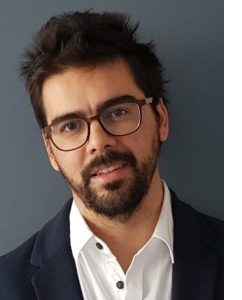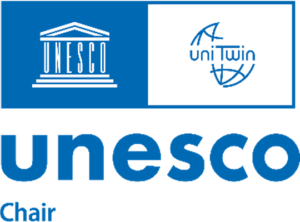Lecture with Osmany Porto de Oliveira
- Date: Monday 09 December 2024
- Time: 12.30pm to 2pm CET
- Location: S5, Maison de la Paix & Online (Zoom)
Interpretation in Arabic, Portuguese and Russian will be available for online participants
Open Café with Osmany Porto de Oliveira
- Date: Tuesday 10 December 2024
- Time: 10am to 11am CET
- Location: The Fab, Maison de la Paix
UNESCO Chair Series in Comparative Education Policy
With just a few years left to shape a new international education agenda, the UNESCO Chair series in Comparative Education Policy invites scholars, decision-makers, and public intellectuals from the Global South to share their analyses of the Sustainable Development Goals (SDGs) and broader international agendas. There is an emerging body of literature in political science, international relations, and comparative policy studies on the promissory legitimacy of global actors (Beckert, 2020; Berten & Kranke, 2022; Robertson & Beech, 2023). How do international and national actors navigate uncertain futures, shape national developments towards their pre-defined future, or correct wrong projections that have negatively impacted present policy decisions? Perhaps more than any other public sector, education is expected to prepare individuals for the future. Even international organizations have made it their project to specify that future in terms of 21st century skills (OECD) or human capital needed for economic productivity (World Bank), education ultimately suffers from a technology deficit. The deficit becomes glaring If we conceive of technology as a device that connects inputs with outcomes because educating subjects in the present (input) for a predefined, internationally agreed upon future (outcomes) is in and of itself counterintuitive. Therefore, education lends itself for reflecting on the promissory legitimacy of international organizations. These are only a few questions that this new area of research is able to address and thereby our understanding of tools of global governance.
This series, organized by the UNESCO Chair in Comparative Education Policy and NORRAG, will navigate the tensions and inequalities inherent in the global aid architecture and discuss the gap between national priorities and global scripts in international development.
 Osmany Porto de Oliveira is a tenured assistant professor in the Department of International Relations at the Federal University of São Paulo (Unifesp). He holds a PhD in Political Science from Université Sorbonne Nouvelle/IHEAL and the University of São Paulo. He has received different international awards, such as the Best Comparative Paper Award from the Journal of Comparative Policy Analysis (2024) and the Early Research Award from the International Public Policy Association (2019). His main research interests are policy transfer and development cooperation, areas in which he has conducted extensive fieldwork across various countries in the Americas, Europe, and Africa. He has different publications on these topics including the “Handbook of Policy Transfer, Diffusion and Circulation”. Additionally, he serves as an Associate Editor for the journal Policy Sciences. Throughout his career, he has been a visiting researcher at Hamad Bin Khalifa University (Qatar, 2023), Université Sorbonne Nouvelle (France, 2019), Institute of Development Studies (England, 2018), and Instituto de Estudios Peruanos (Lima, 2013).
Osmany Porto de Oliveira is a tenured assistant professor in the Department of International Relations at the Federal University of São Paulo (Unifesp). He holds a PhD in Political Science from Université Sorbonne Nouvelle/IHEAL and the University of São Paulo. He has received different international awards, such as the Best Comparative Paper Award from the Journal of Comparative Policy Analysis (2024) and the Early Research Award from the International Public Policy Association (2019). His main research interests are policy transfer and development cooperation, areas in which he has conducted extensive fieldwork across various countries in the Americas, Europe, and Africa. He has different publications on these topics including the “Handbook of Policy Transfer, Diffusion and Circulation”. Additionally, he serves as an Associate Editor for the journal Policy Sciences. Throughout his career, he has been a visiting researcher at Hamad Bin Khalifa University (Qatar, 2023), Université Sorbonne Nouvelle (France, 2019), Institute of Development Studies (England, 2018), and Instituto de Estudios Peruanos (Lima, 2013).
Co-host:

Co-sponsors:





